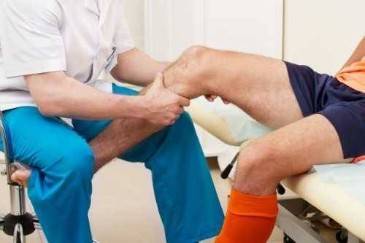Social media has become an integral part of our lives, allowing us to connect with friends and family, share our experiences, and express our opinions. However, the widespread use of social media has also had a significant impact on Georgia’s personal injury claims. In this blog post, we will explore how social media can affect your personal injury claim in Georgia and provide tips on how to protect your case.
Social media can be used as evidence
Insurance companies and defense attorneys are constantly looking for ways to reduce the amount of compensation they have to pay to injured parties. In recent years, social media has become a valuable tool for them to gather evidence that can be used to challenge your claim.
For example, if you post a photo of yourself on social media after your accident, the defense may use it to argue that your injuries are not as severe as you claim. Similarly, if you post about your accident, they may use your statements against you to undermine your case.
Social media can contradict your claims
In addition to using social media to gather evidence, the defense can also use it to contradict your claims. For example, if you claim that you are unable to participate in certain activities due to your injuries, but then post photos or videos of yourself engaging in those activities on social media, it can weaken your case.
Social media can impact your credibility
Even if the defense is unable to find evidence that contradicts your claims, your social media activity can still impact your credibility. If you are posting about your accident or injuries on social media, it can be perceived as attention-seeking behavior, which can make it more difficult to convince a jury that your injuries are real and that you deserve compensation.
Tips for Protecting Your Case
Limit your social media activity
The best way to protect your personal injury case is to limit your social media activity. Avoid posting about your accident, injuries, or any related activities on social media. It’s also a good idea to avoid posting any photos or videos that could be used to undermine your claim.
Adjust your privacy settings
Even if you limit your social media activity, it’s still possible for the defense to find information that could be used against you. To reduce the chances of this happening, adjust your privacy settings to make your profiles as private as possible.
Be honest with your attorney
It’s important to be honest with your attorney about your social media activity. If the defense does find evidence that contradicts your claims, it’s better for your attorney to hear about it from you than to be blindsided by it in court.
Think before you post
Before posting anything on social media, think about how it could potentially impact your personal injury case. Ask yourself if the post could be interpreted in a way that undermines your claim or credibility. If you are unsure, it’s best to err on the side of caution and not post anything related to your case.
Be cautious of friend requests and messages
Be cautious of friend requests and messages from people you don’t know. It’s possible that the defense or insurance company could be using fake accounts to gain access to your social media activity. If you receive any suspicious friend requests or messages, it’s best to ignore them or report them to the social media platform.
Avoid discussing your case with anyone on social media
It’s important to avoid discussing your case with anyone on social media, including friends and family. Even if you trust the people you are communicating with, it’s possible that their accounts could be hacked or their information could be compromised. It’s best to limit any discussions about your case to your attorney and other trusted advisors.
Social media can have a significant impact on your personal injury case in Georgia. By limiting your activity, adjusting your privacy settings, and being cautious of friend requests and messages, you can protect your case and improve your chances of receiving fair compensation for your injuries. Remember to always think before you post and to be honest with your attorney about your social media activity.
Gunnels Injury Law can provide expert legal representation and guidance to help clients navigate the impact of social media on their Georgia personal injury claims. Our experienced attorneys understand the complexities of personal injury law and how social media can impact a case.
Here are some ways Gunnels Injury Law can help with the impact of social media on Georgia personal injury claims:
Legal representation and advice
Our attorneys can provide expert legal representation and advice to help clients navigate the impact of social media on their personal injury claim. We can review our clients’ social media activity and advise them on how to protect their case, including limiting their activity, adjusting their privacy settings, and avoiding discussions about their case on social media.
Evidence gathering
Our attorneys can also gather evidence from social media that may be relevant to our clients’ case. This includes reviewing the social media activity of the defendant or any witnesses to the accident, as well as our clients’ own social media activity. By gathering this evidence, we can build a stronger case for our clients.
Negotiation and settlement
If the defendant or insurance company uses social media to challenge our clients’ claim, we can negotiate and settle the case to ensure our clients receive fair compensation for their injuries. Our attorneys have extensive experience in negotiating and settling personal injury cases, and we can use this experience to help our clients get the best possible outcome.
Gunnels Injury Law can provide expert legal representation and guidance to help clients navigate the impact of social media on their Georgia personal injury claims. Our attorneys have the knowledge and experience to protect our clients’ case and ensure they receive fair compensation for their injuries.
